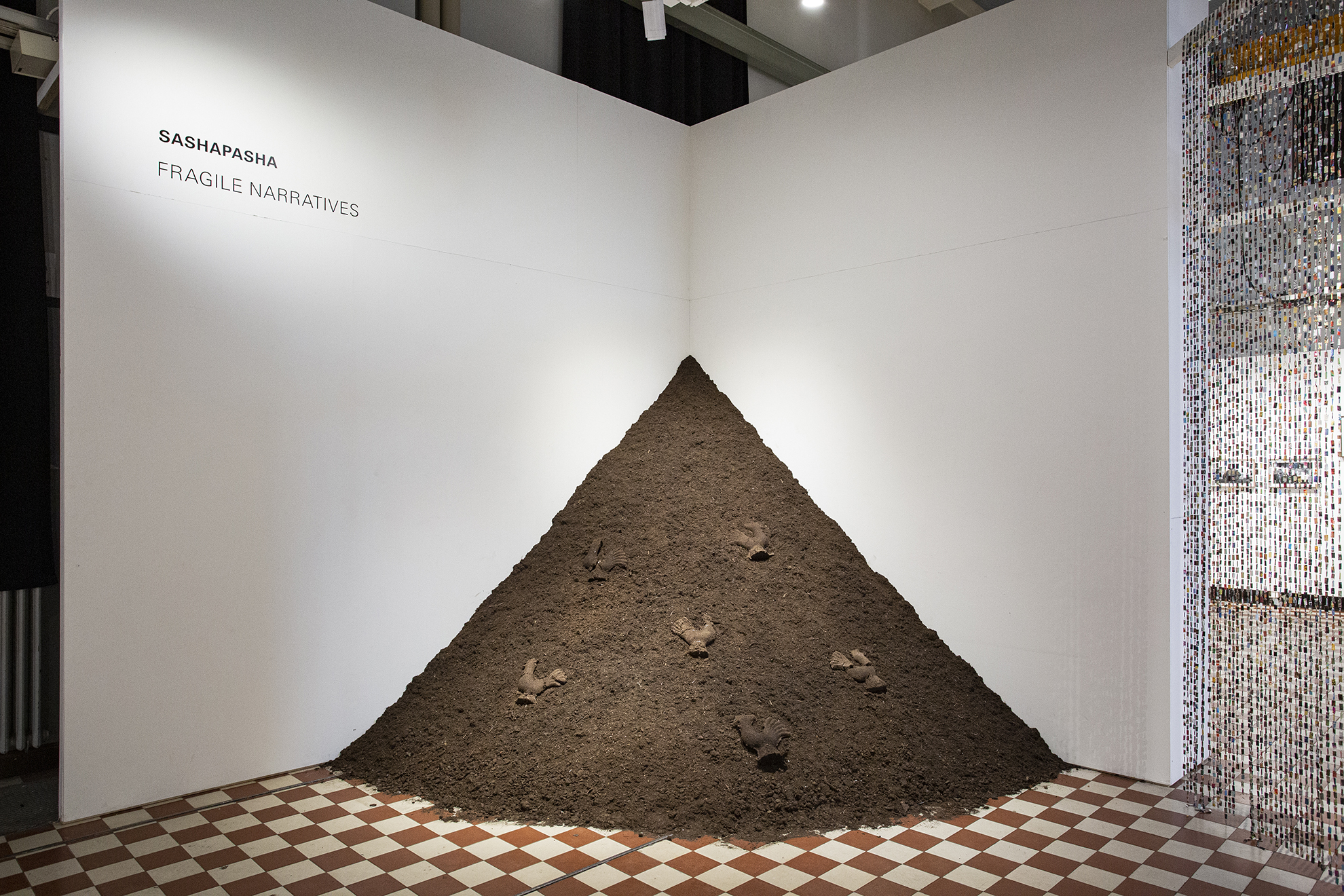
The tragic outbreak of war started by the Russian invasion of Ukraine is dramatically changing our attitude towards memory. The principles of how we used to work, with traumatic memories of the past, can never be the same again. The Fragile Narratives exhibition by SASHAPASHA (Sasha Rotts and Pavel Rotts) addresses memory on different levels. While Sasha’s objects and embroideries are dealing with her own memories, Pavel’s works are based on the memoirs of his grandparents, but what is common to both, are memories from childhood.
Sasha’s mother kept many drawings that she made as a child. Mostly done in kindergarten, her name is written on the reverse, in the teacher’s hand and the first letter of the surname is followed by a full stop, Sasha F. At what point do adults lose the ability to create in the same way as children do? Not being afraid of making mistakes, depicting a circle with jagged edges, changing proportions and animating objects. The shining sun is smiling. Why don’t adults want to draw a smile on the sun?
As a child, in order to learn something, one has to repeat it many times. Squiggles in notebooks, numbers, letters, drawings. In Sasha’s art she has fallen in love with routine; the ritual of repetition, the process of performing the same simple action until it reaches perfection. She folds postcards one after another to make a curtain. Opening the curtain one can enter her childhood world, where she is an artist and a demiurge.
In the exhibition, Pavel’s works jumps over a generation creating a bridge between his childhood and the childhood memories of his grandparents - children of war. The objects are first and foremost, metaphors. The wooden pencil case of his grandfather's, who travelled from Russia to Finland. Wicker baskets, made by his maternal grandfather during WWII on the Belomorkanal. Soviet lollipop moulds that were used by his grandmother’s Ingrian family to survive through the winter during their evacuation in Sverdlovsk.
The Fragile Narratives exhibition aims to create a bridge whose foundations are based on the concept of memory as a continuous flow. The ongoing war has shown us that history is not a progression from wars and conflicts to humanity and peace. History is a loop of traumatic memories and the only safe space we have is the fragile narratives of our own micro-histories.
We would like to thank everyone who was helping us with this work. Elena Rotts, Maria Poikalainen, Natalie Hamada, Robin Elis and foundations that made this possible to happen. This exhibition was supported by Arts Promotion Centre Finland (Taike) We also thank GALLERIA HUUTO for space and support. We wish to offer separate thanks to our families who participated in the project, not just with their help and support but also by investing their memories and biographies. Especially Sasha’s mother and sister Tatiana and Natalia Fadeeva, Pavel’s paternal grandfather Vladimir Rotts, and Pavel’s maternal grandmother Lilija Fedorova.

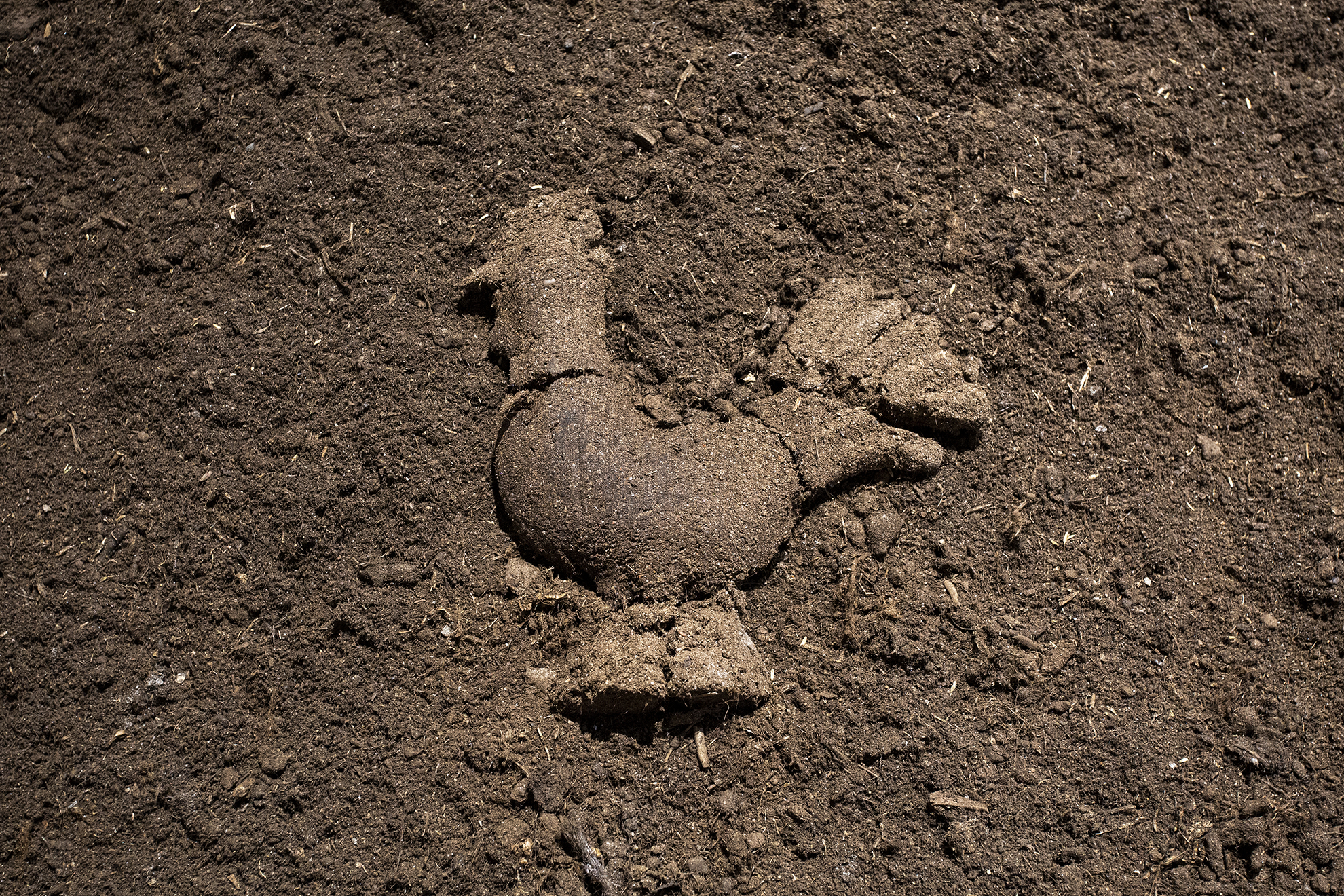
Sweet Land, Pavel Rotts, 2017-2022, installation, video, objects, soil, sugar, wood, metal
Soviet lollipop moulds were used by Pavel’s grandmother’s Ingrian family to survive through the winter during their evacuation in Sverdlovsk. These become a frame for the reenactment of a historical event which happened during the siege of Leningrad (St.Petersburg) in WWII. The huge food warehouses were bombed and burned to the ground. Tons of melted sugar were absorbed into the soil. City legend tells that children used to suck the soil like lollipops.
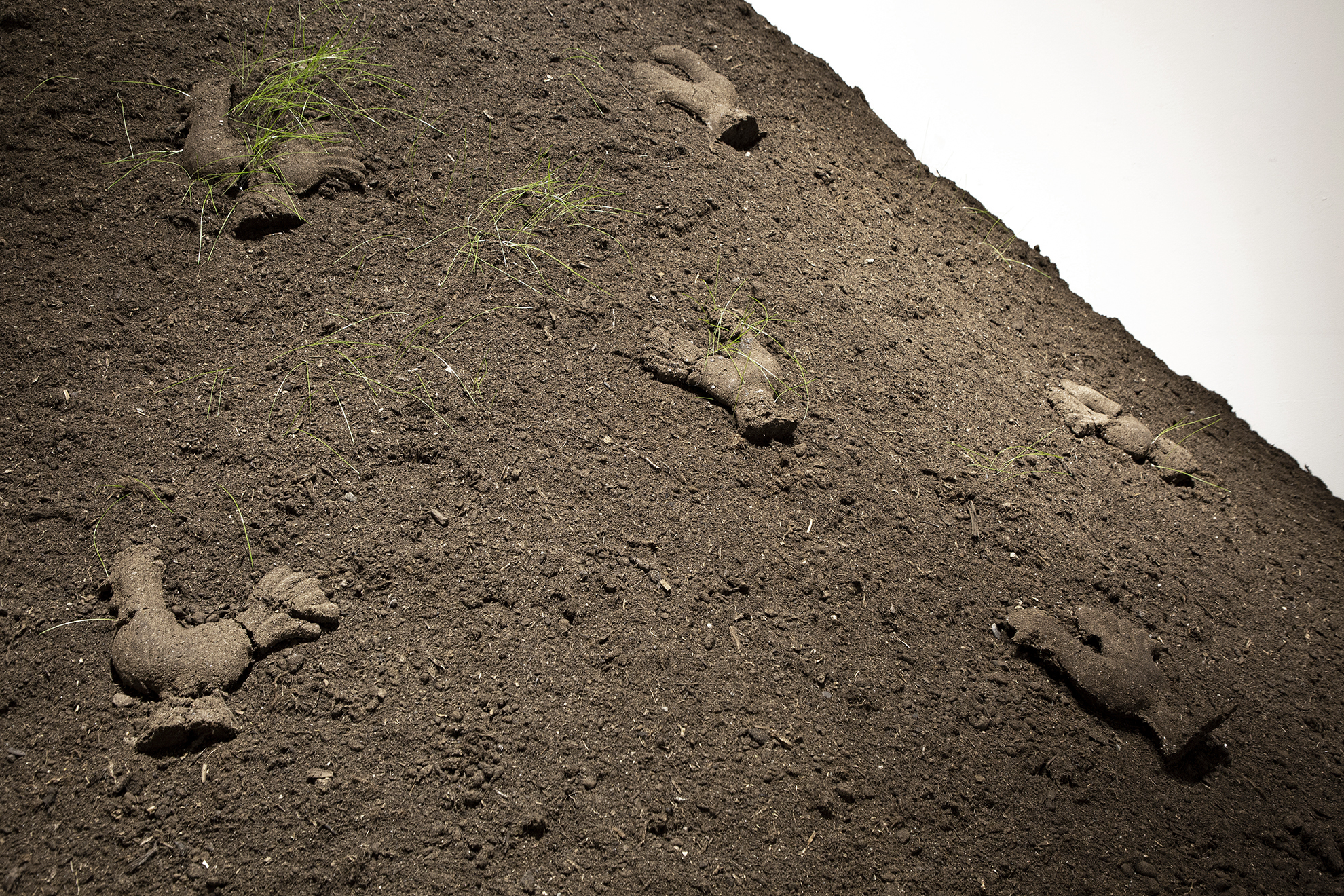
Vase, Sasha Rotts, 2021-2022, 200x200, treads, fabric, appliqué.
The work is based on an appliqué made by the artist aged 3. The motif of this vase has been used by Sasha for many years in different contexts. Here it became a wallpaper which is one of the most common features of Soviet childhood home memories.
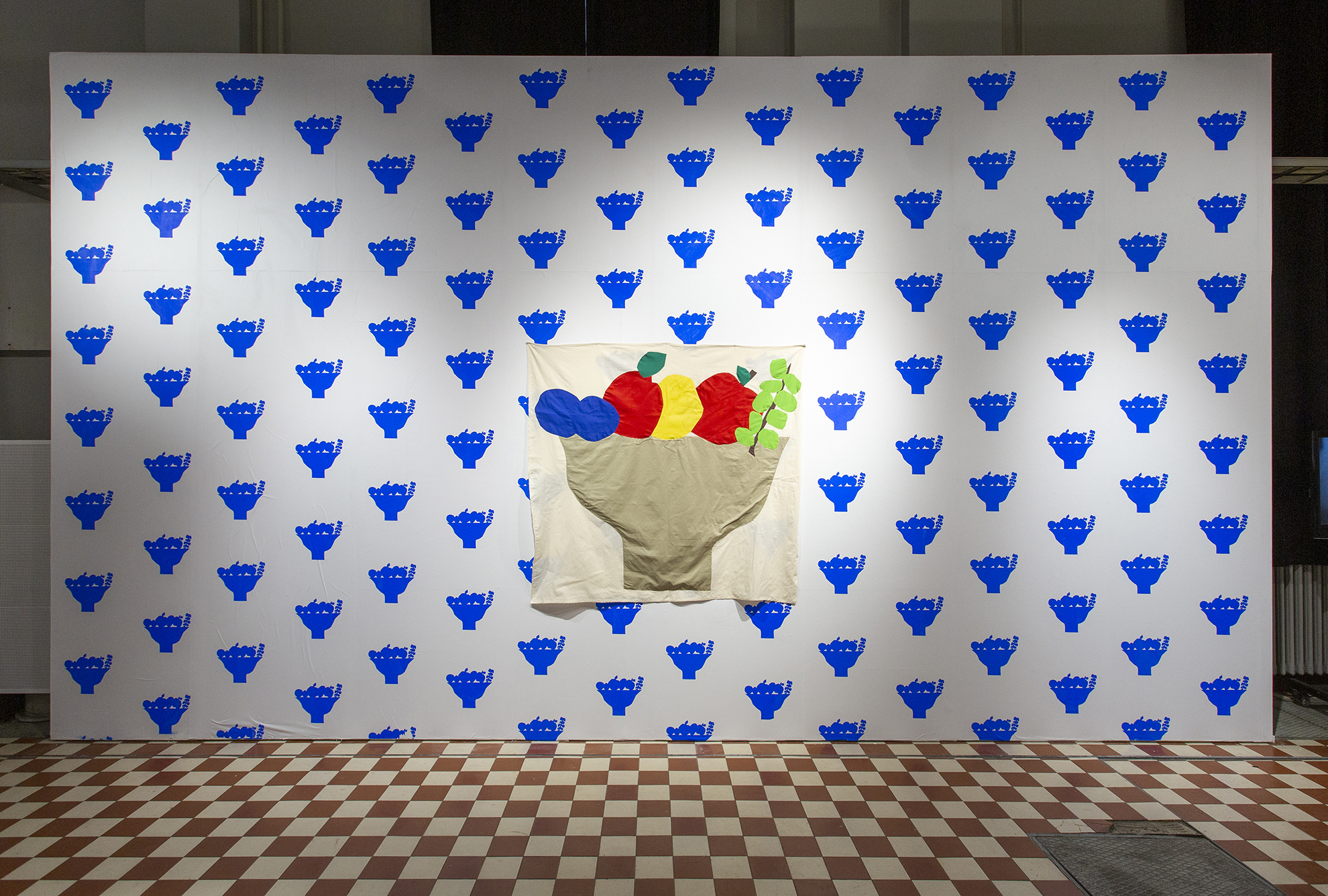
Embroidered Flowers, Sasha Rotts, 2022, 200x200, thread, fabric, embroidery
It was a so-called “labour class” at elementary school. Boys worked with wood and metal and girls were forced to work with textiles. Sasha’s mother was helping Sasha to do her homework. The embroidery on the wall is the original made by Sasha’s mother and the huge version of it that is covering the pile of soil is Sasha’s reenactment.
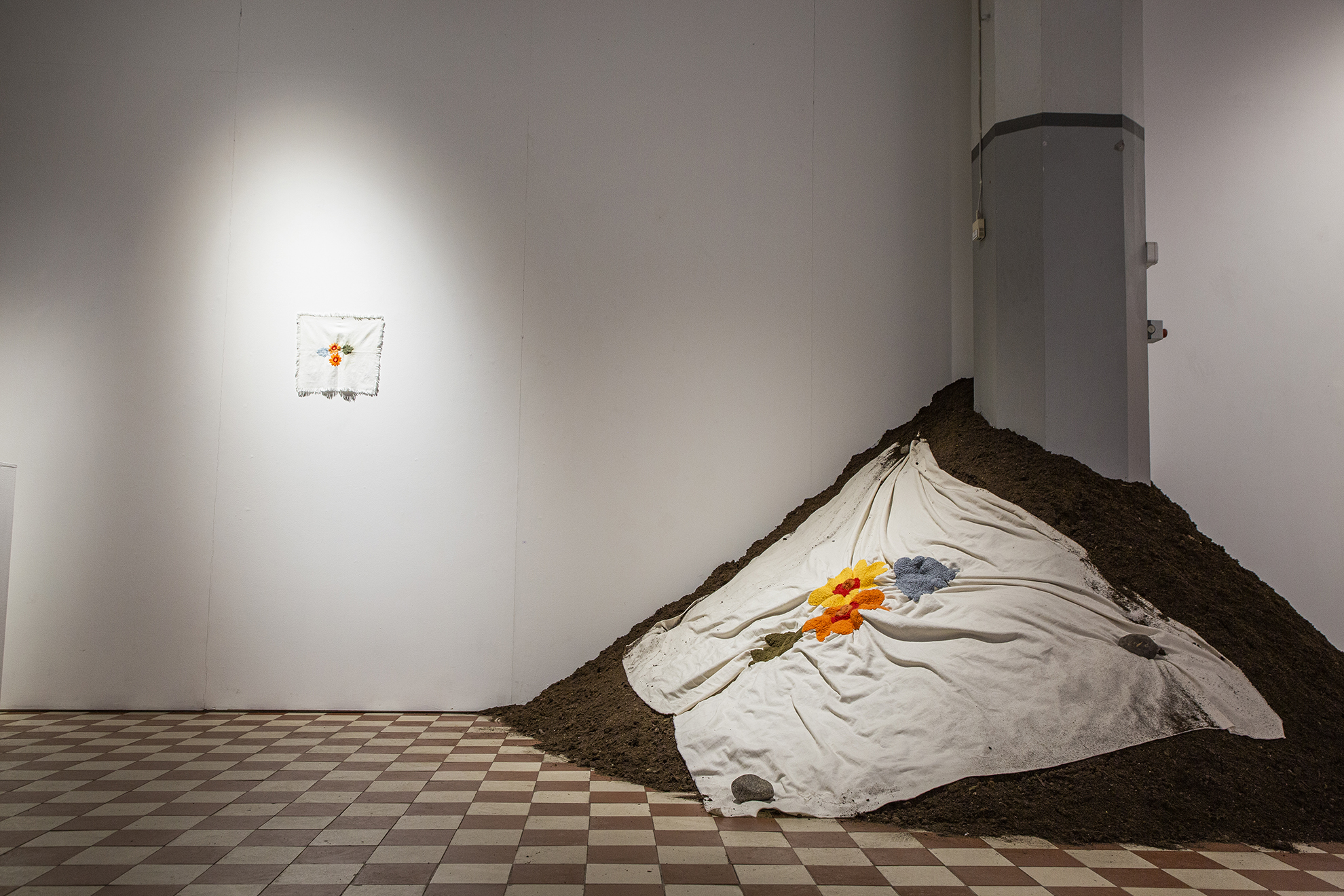
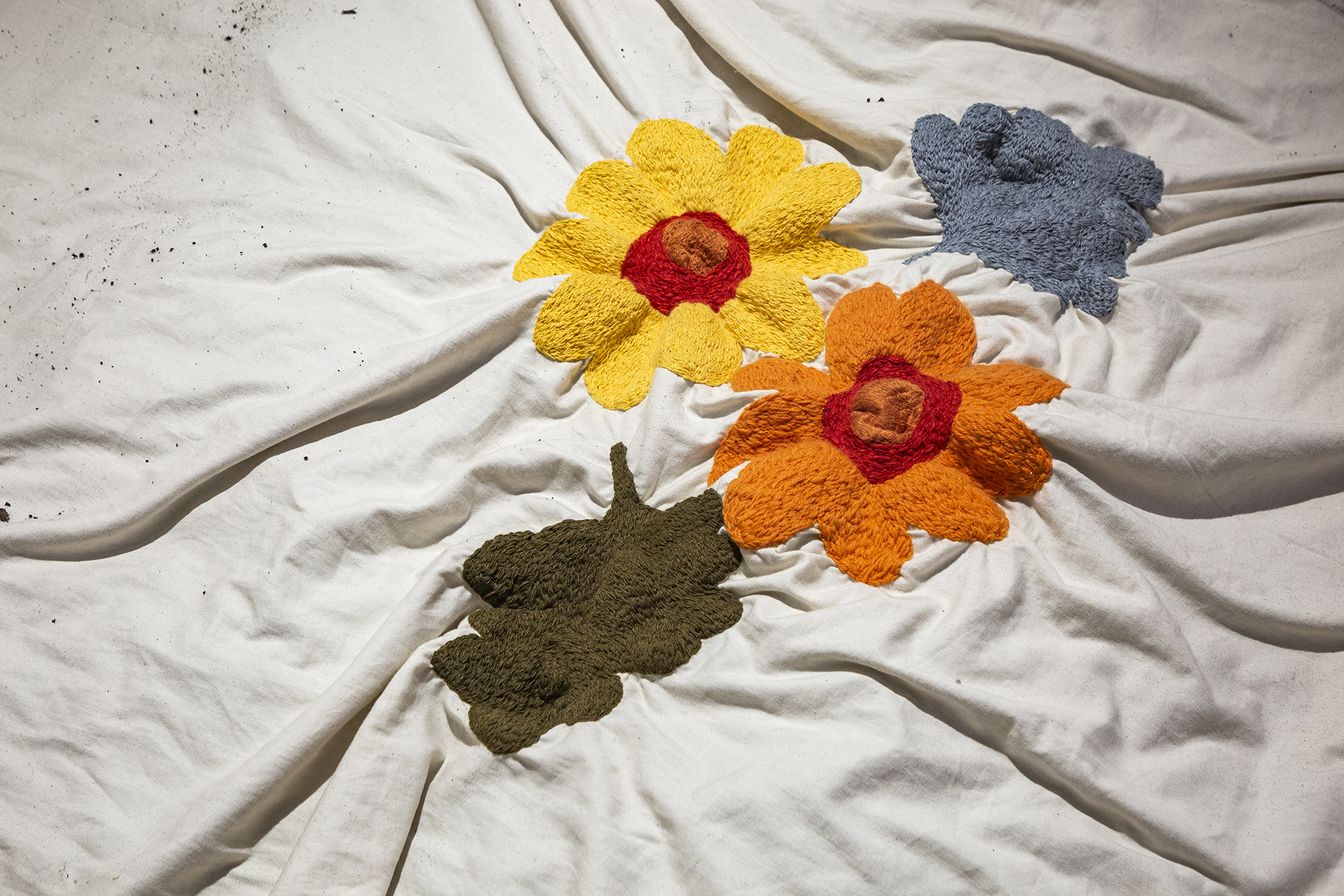
Klooga, Pavel Rotts, 2016-2022, Installation, 25x25x25cm, burned birch wood, video, duration 5:50
The wooden pencil case of his grandfather, who travelled from Russia to Finland. The central object of the Klooga work is the wooden pencil case of Pavel’s grandfather that became a symbolic object for the family, reminding us about the deportation of the Ingrian Finnish population both by the Soviet authorities and the Nazis. Burned wood is a dark paraphrase of the last days of the Klooga camp where Nazis were trying to burn bodies to erase the evidence of their war crimes, which in turn can be not associated with the terrible war crimes of Russian soldiers in Ukraine during the last two months.
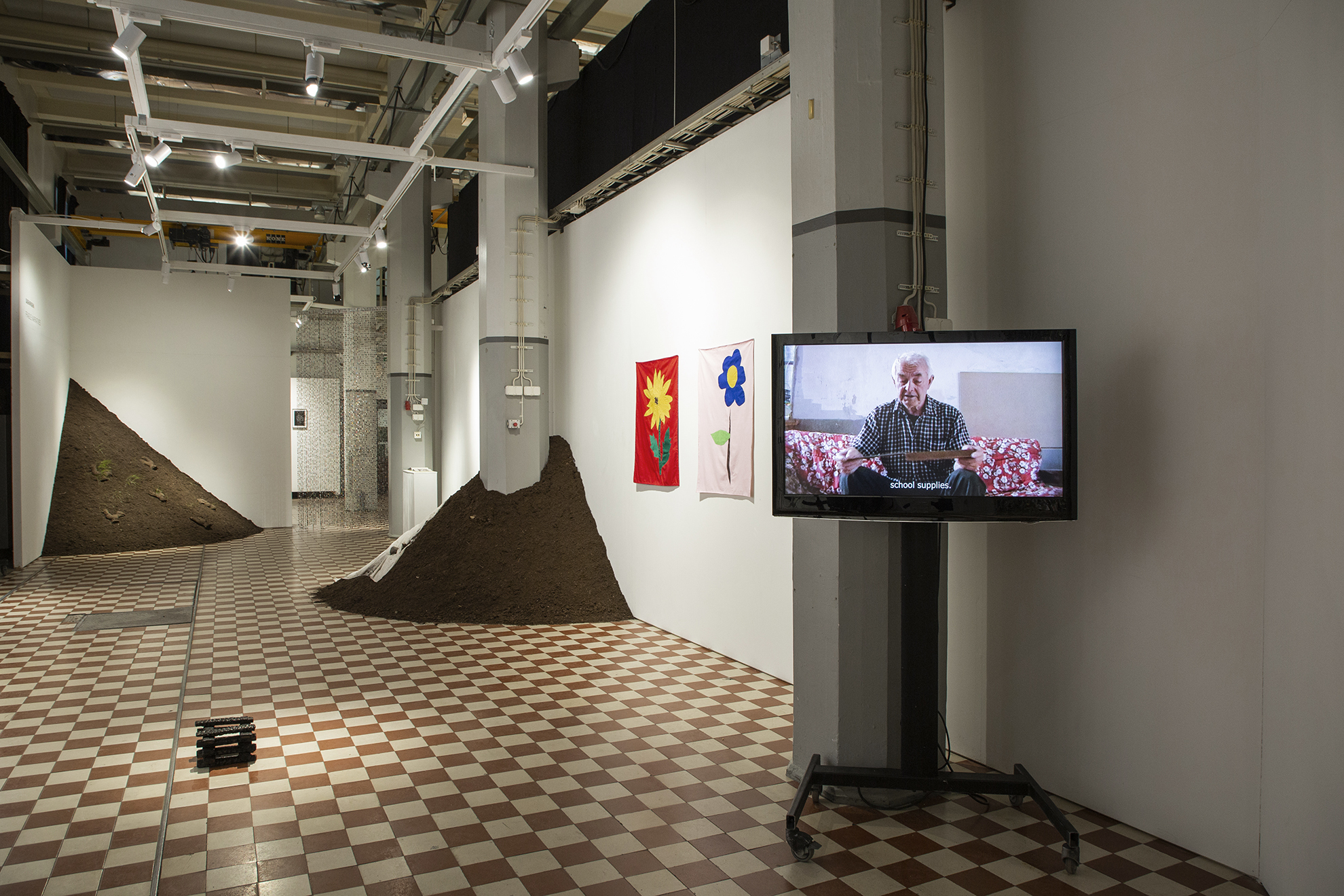
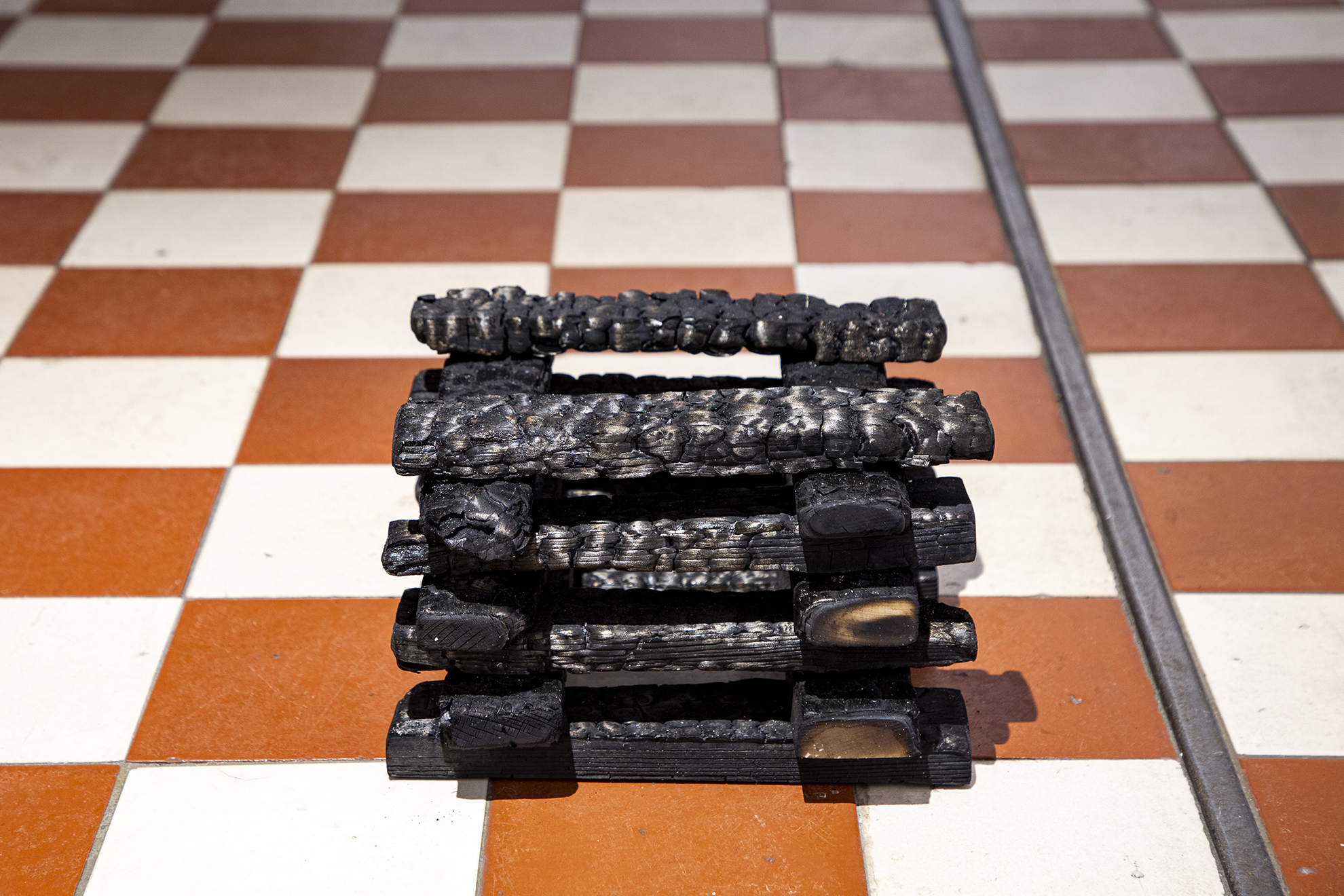
Iron Curtain, Sasha Rotts, 2022, 325x220, metal samples, old soviet postcards
Routine - the ritual of repetition, the process of performing the same simple action until it reaches perfection. Folding old soviet postcards one after another to make a curtain. This curtain is a homage to the old soviet handmade tradition. People behind the iron curtain used all possible means to create something special that would differentiate their home from others. This curtain is also evidence of the corruption at workplaces during the Soviet era, where the time was endless and materials were “free”.
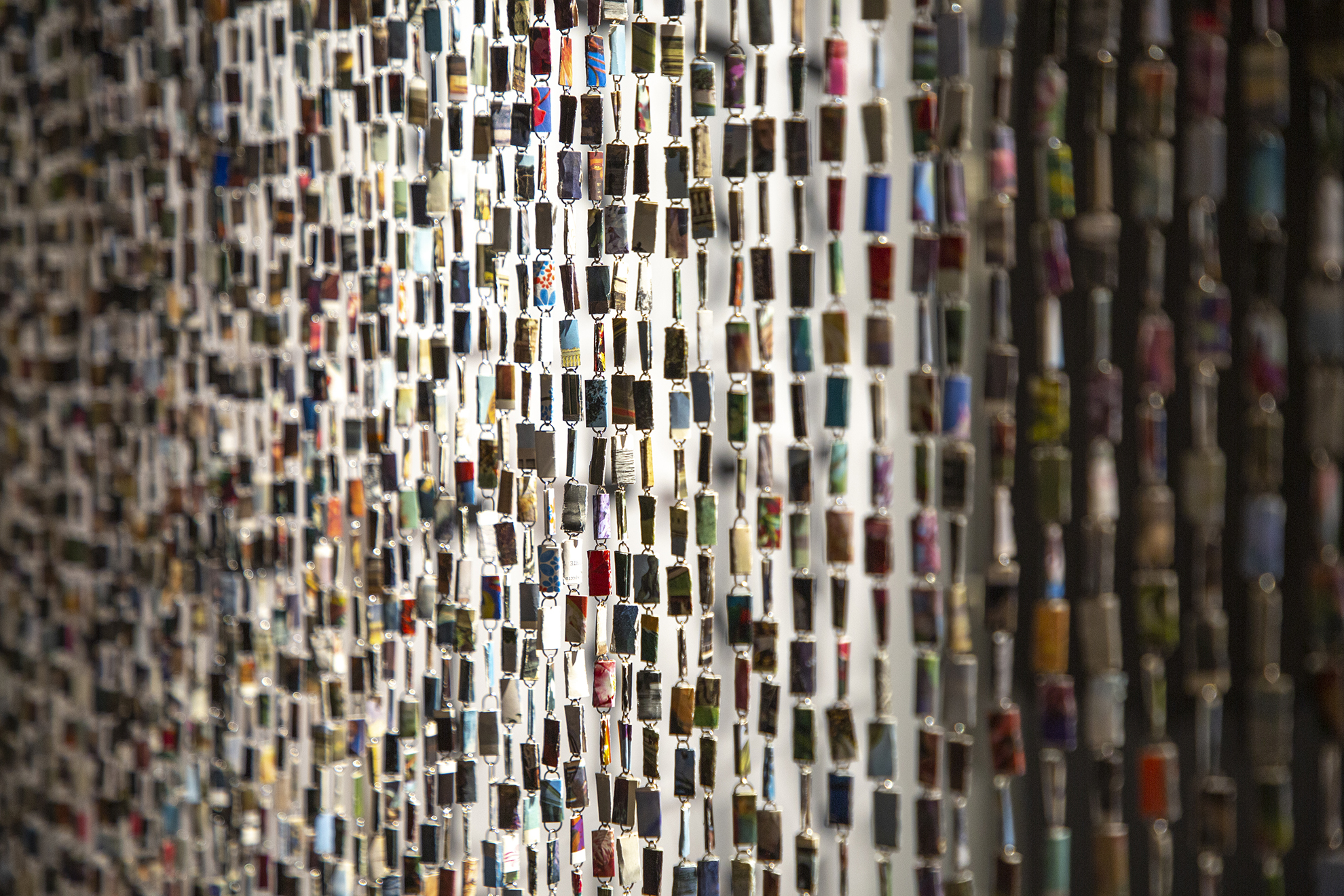
Flowers (left), Sasha Rotts, 2021-2022, 90x70 thread, fabric, appliqué
This is the story about two sisters and their school time. Sasha has a sister who is ten years older. But despite the age difference, their experience and childhood memories are so close that they almost merge. These two flowers were made by Sasha Fadeeva (Rotts) and Natalia Fadeeva when they were children.
The album (right), Sasha Rotts, 2022, 21x29x3cm, family photographs, cardboard, threads, fabric, bookbinding
Sasha’s parents collected the photographs to make a memory album about her childhood but gradually the idea was abandoned and the photographs were kept in a box for more than twenty years. Now Sasha has decided to realise this forgotten family project
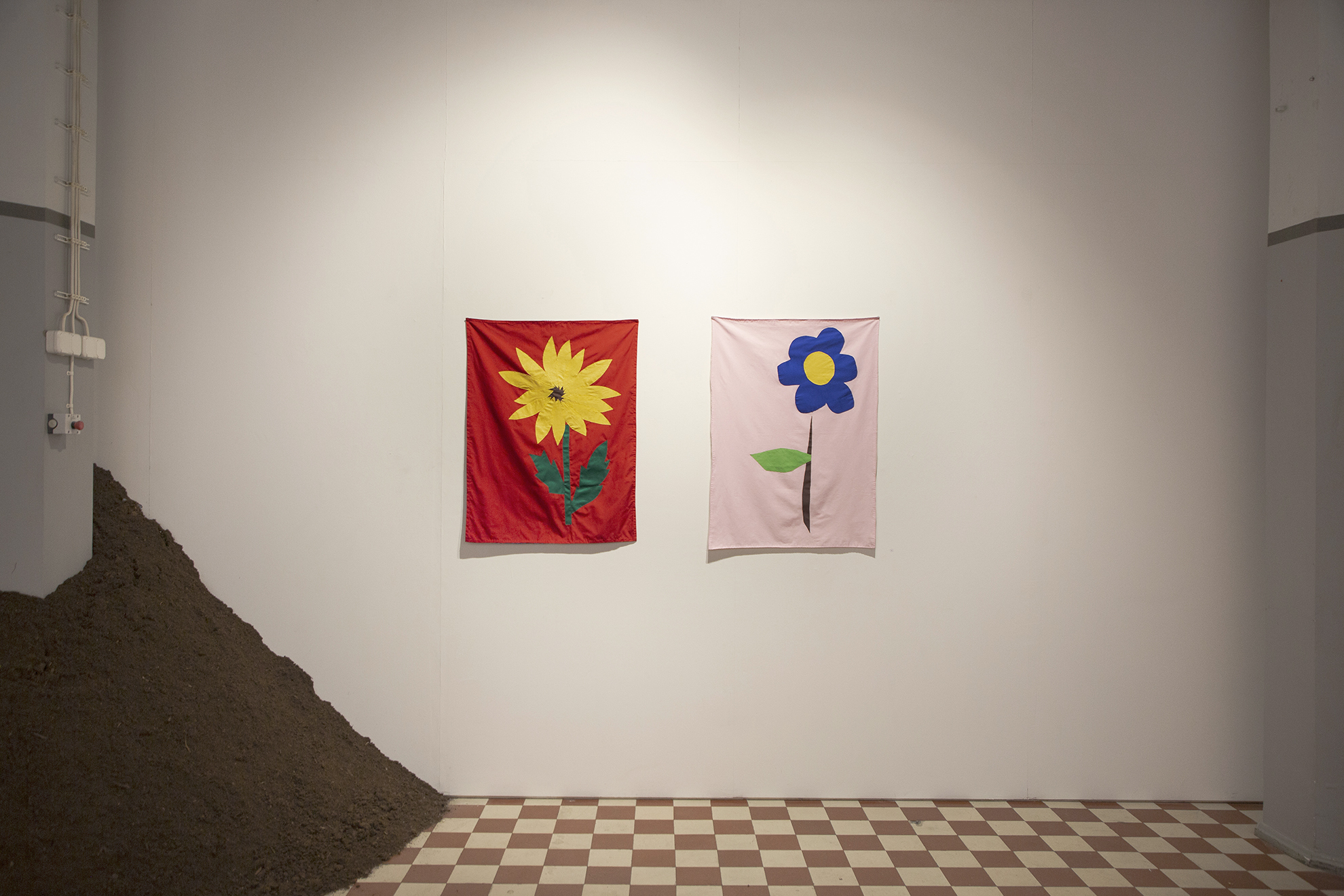
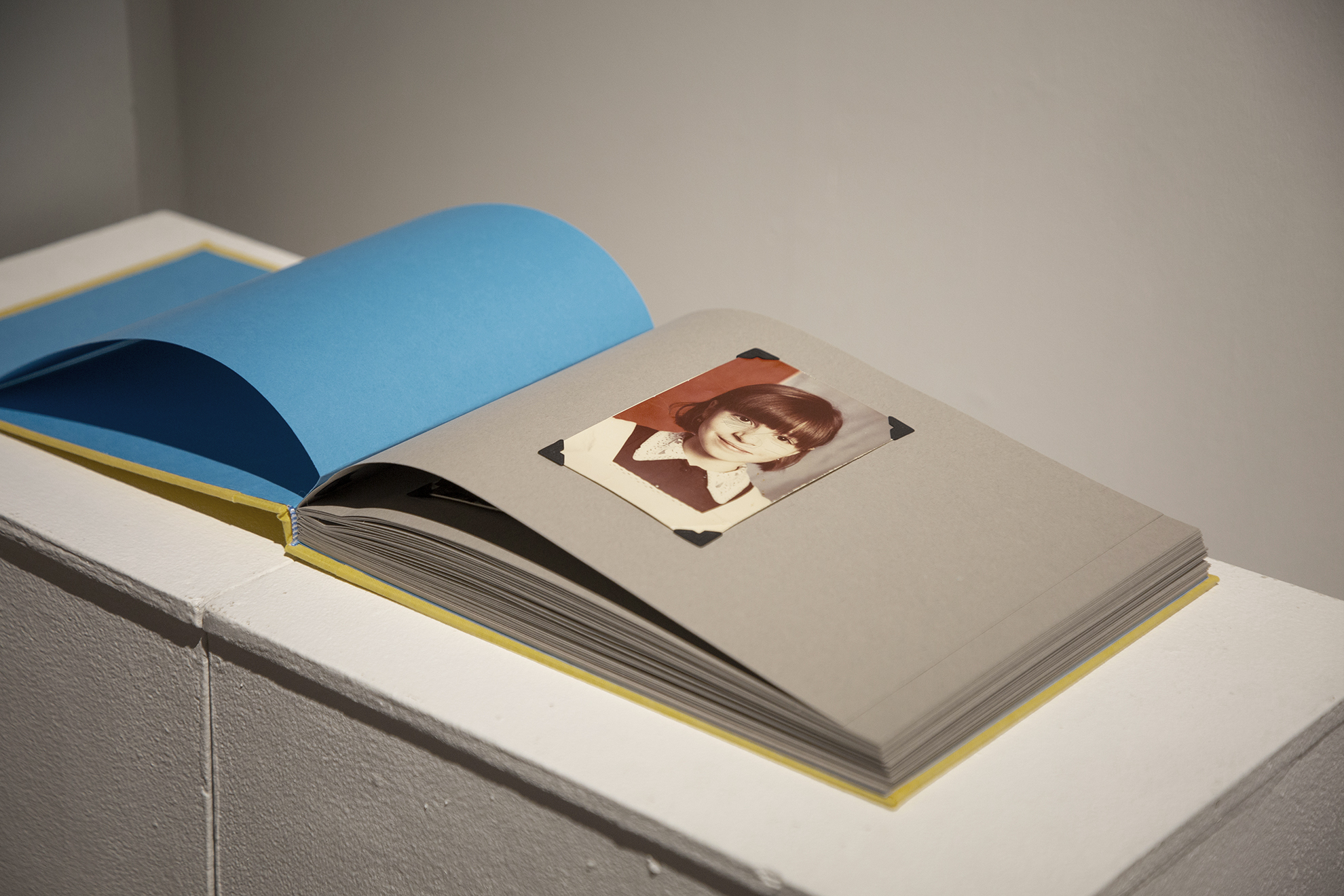
A Garden, Pavel Rotts, 2022, soil, grass, handprinted L-size t-shirts.
As a witness describes the ongoing siege of the city of Mariupol in Ukraine in an interview recorded by BBC: “Mariupol is a graveyard now. All the neighbourhoods are covered in the graves of civilians.” The cemeteries are under Russian artillery fire and people just have to bury their relatives in yards and gardens. One hundred T-shirts are for sale. The price is 50€. All the proceeds will go to a charity organization actively helping Ukraine and Ukrainian refugees right now.
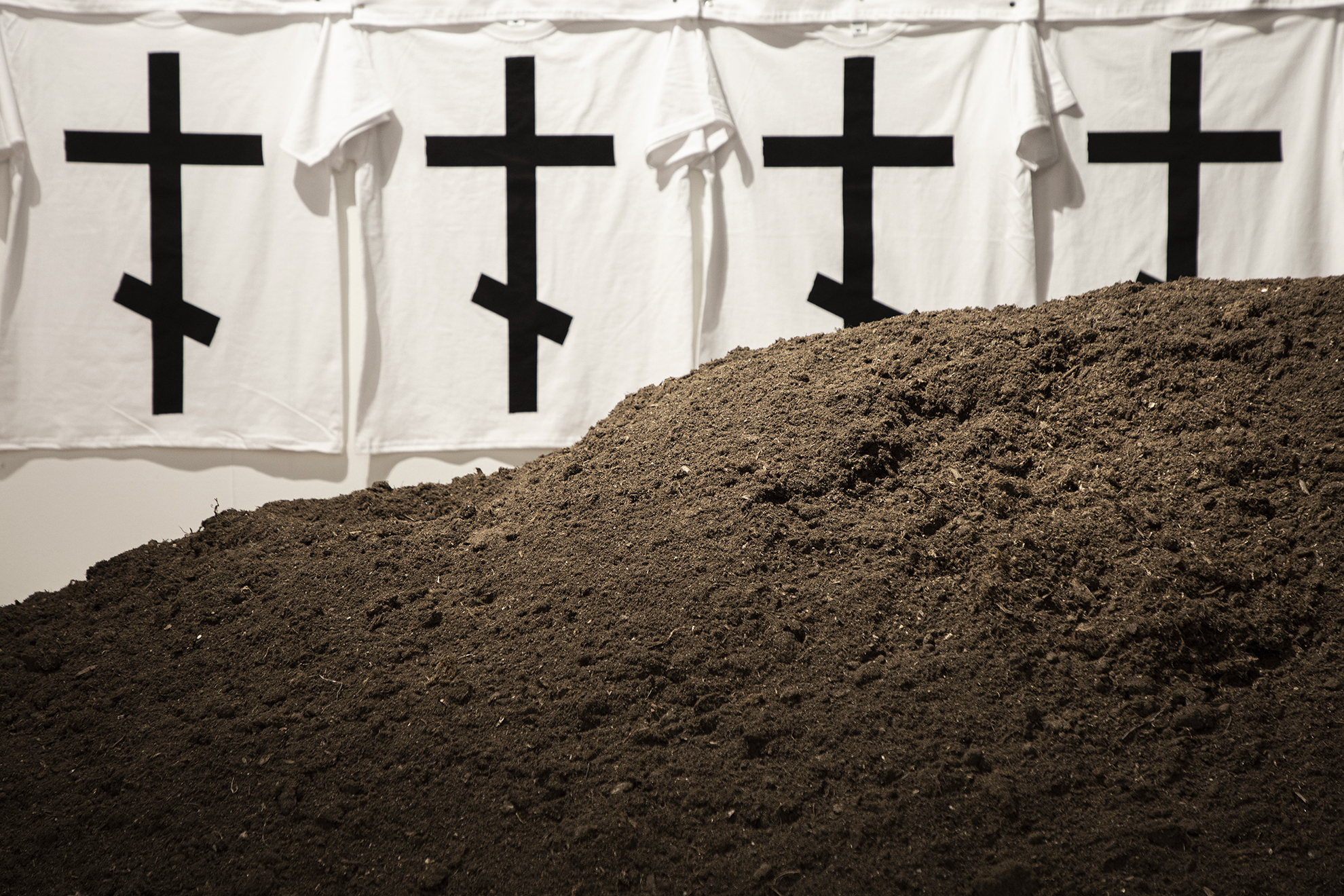
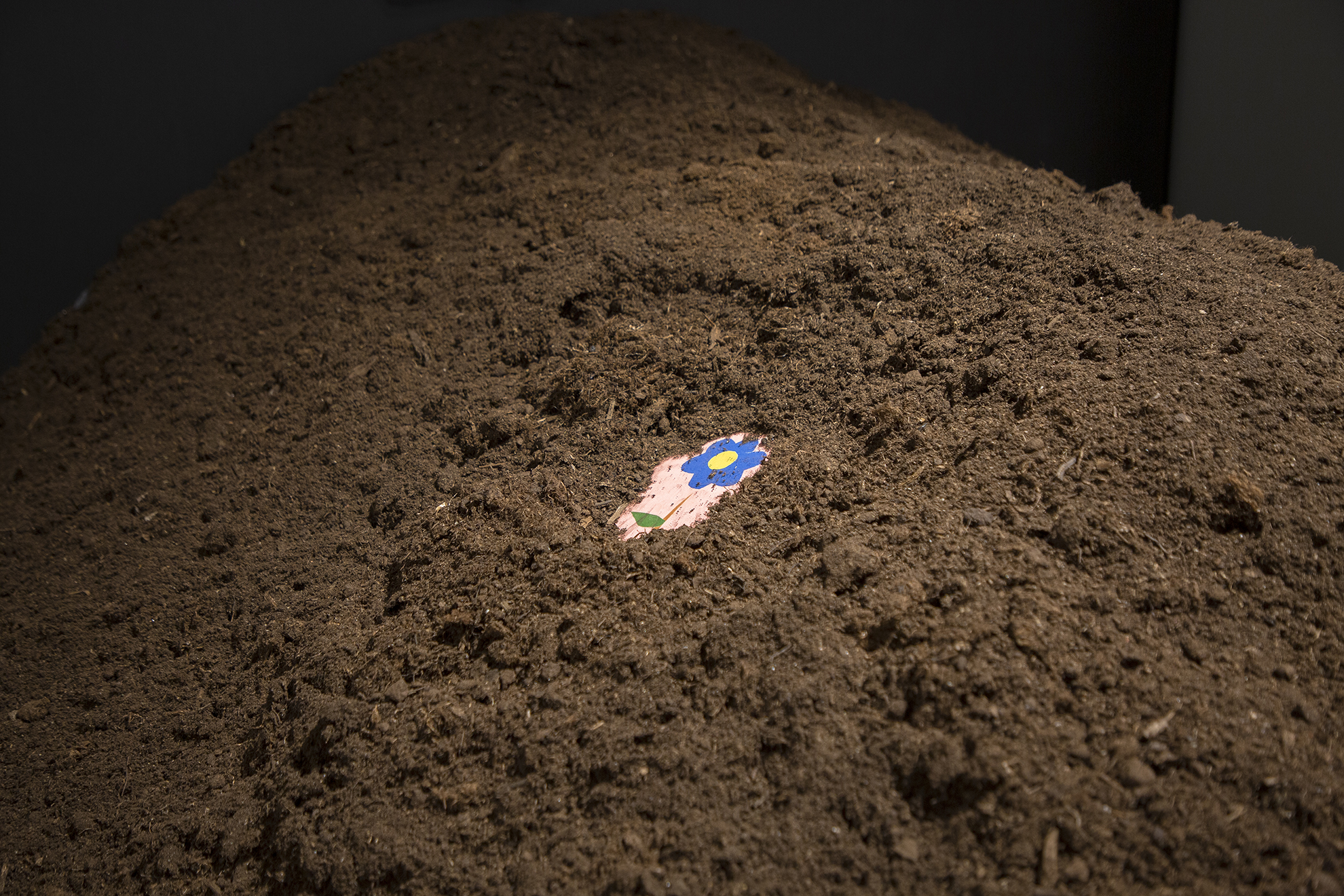
The project Fragile Memory and this particular exhibition was supproted by Arts Promotion Centre Finland (Taike)
